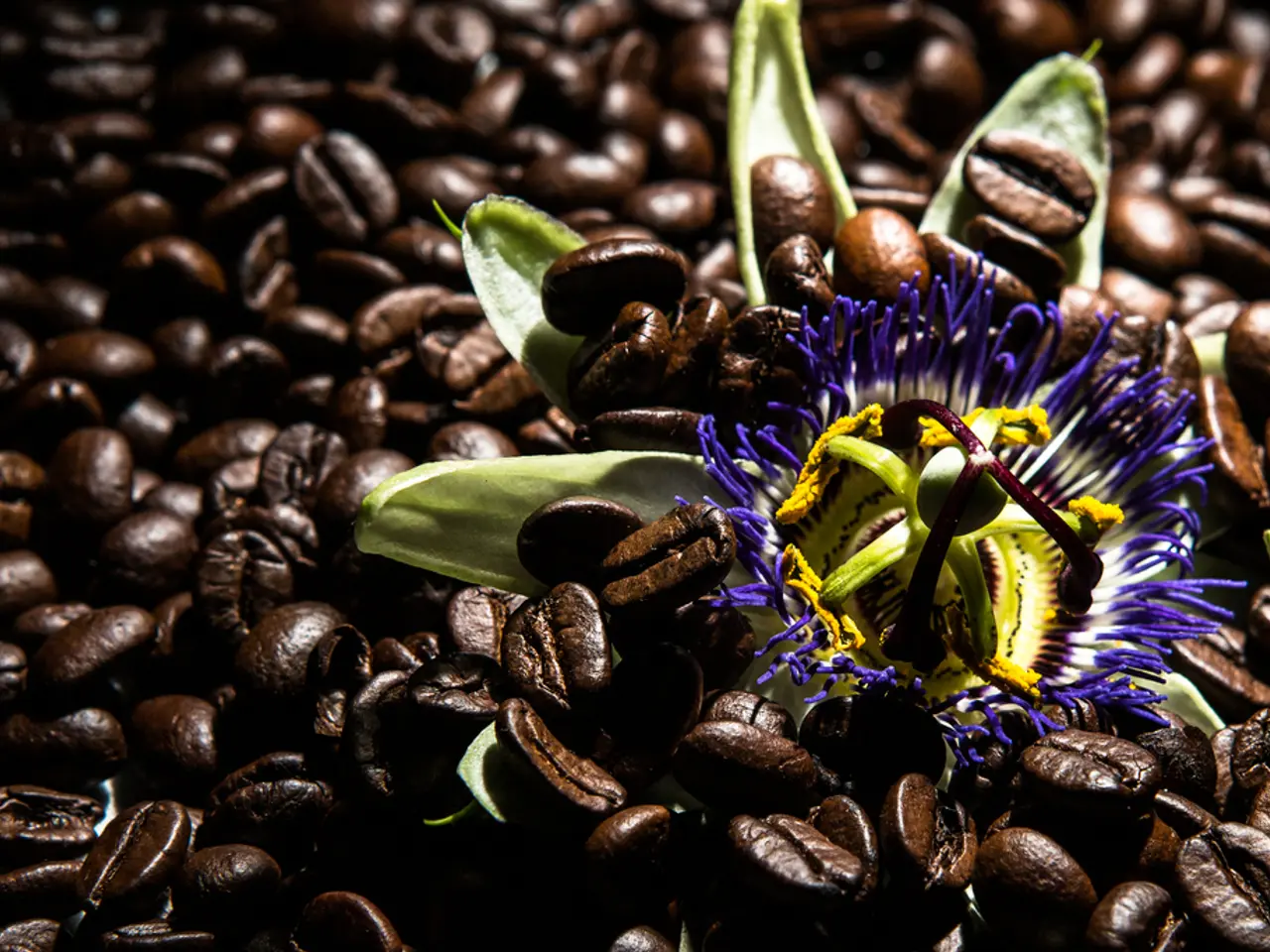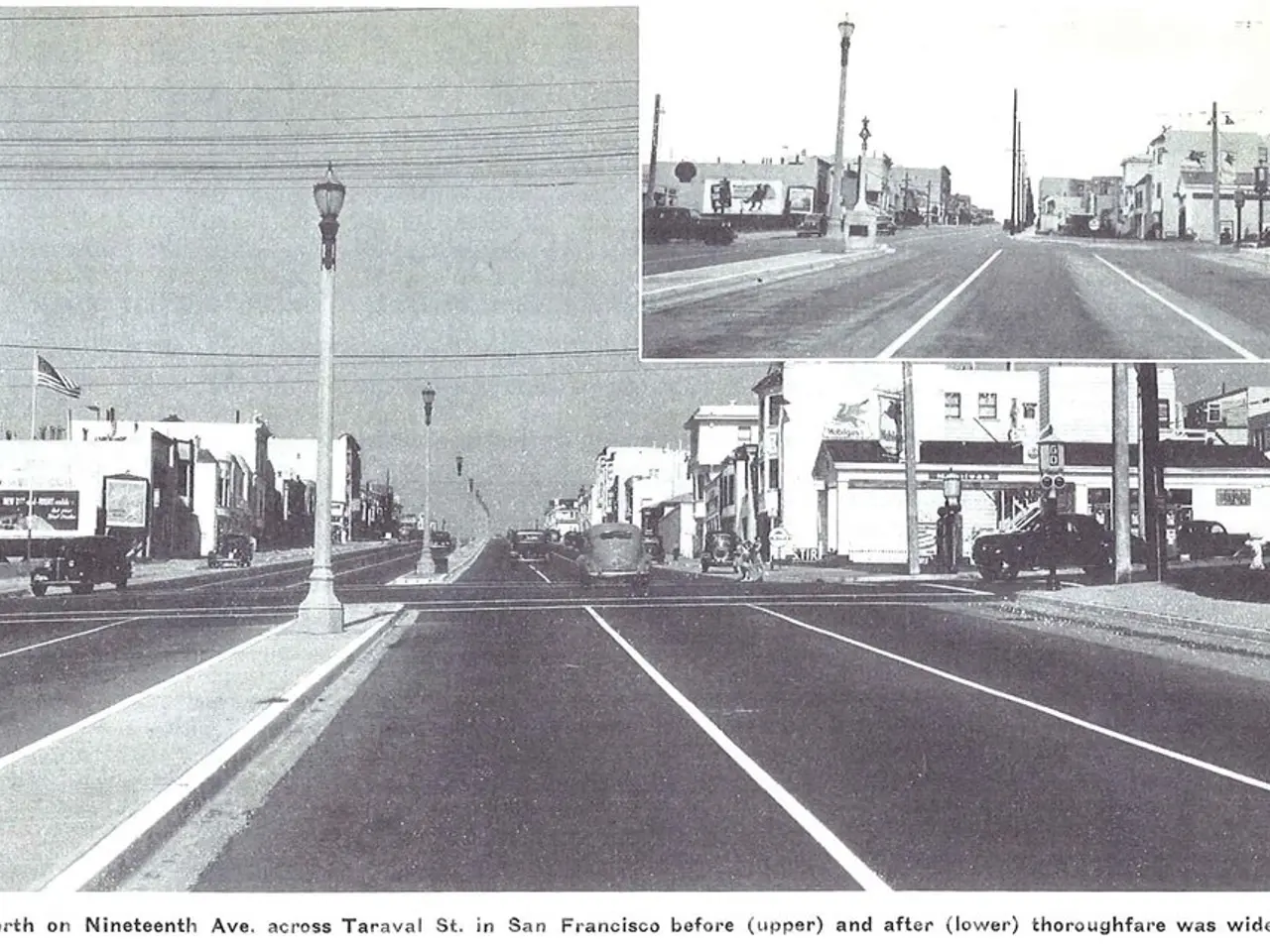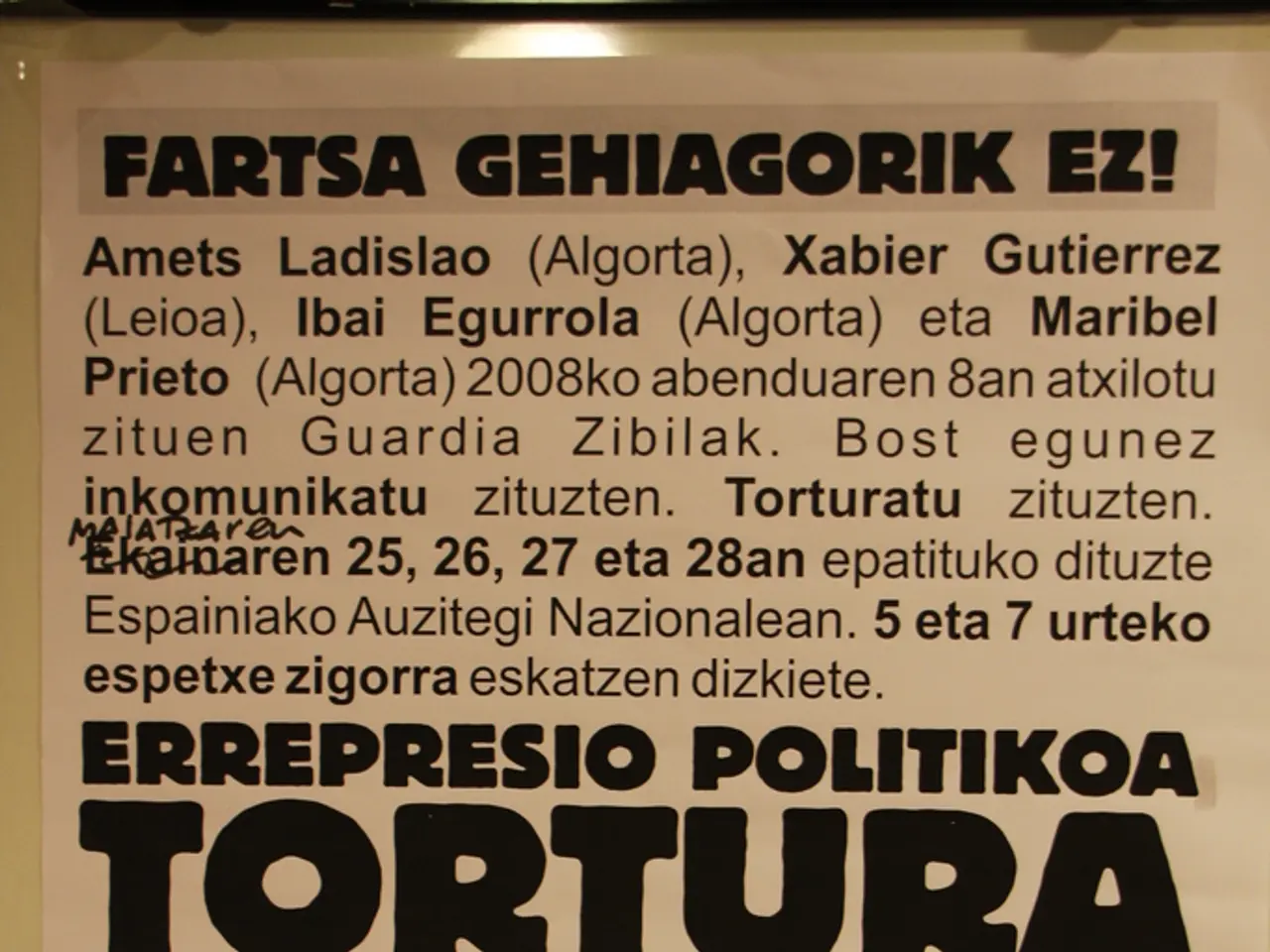Coffee prices for Arabica variety drop due to speculation that it will be excluded from tariffs
In the world of coffee, prices have recently taken a dip, reaching around 286 US cents per pound as of early August 2025. This decline, approximately 3% from the previous day, is primarily attributed to Brazil's advanced harvest, which is now over 80% complete, and increased selling pressure [1][3][2].
Brazil's large coffee cooperative, Cooxupe, reported a 67% completion rate as of late July, with the robusta harvest nearly concluded and arabica progressing steadily [2]. However, the looming spectre of tariffs on Brazilian exports presents an upward price risk. The US plans to impose a 50% tariff on Brazilian coffee imports starting August 6, potentially making it less competitive in the US, its largest market, which accounts for 30% of US coffee imports and 16% of Brazil’s exports [2][4].
Brazil is currently in discussions with US trade officials regarding potential exemptions for its coffee exports [4]. Until these negotiations are resolved, the tariff threat continues to support some price gains.
Meanwhile, Vietnam's coffee production, particularly robusta, is also facing challenges due to drought and lack of rain forecasts, adding to supply concerns that support robusta prices [3]. An excessive short position by funds in robusta futures further accentuates the potential for sharp price movements on short covering [2].
Weather events in Brazil, such as a cold front arriving in early August, still pose a threat to main growing areas. If damage occurs, prices could spike temporarily, but current assessments see negligible risk to crops, which would likely limit a sustained rally [1].
Market models predict that coffee prices will gradually rise to around 295 US cents per pound by the end of Q3 2025, and to about 322 US cents in 12 months. This expected increase reflects a balance between bearish crop and harvest data and tariff and weather-related upside risks [3].
In summary, coffee prices are currently experiencing downward pressure from a large Brazilian harvest and producer selling, but are supported by looming tariffs on Brazilian exports and drought concerns in Vietnam. Short-term volatility is likely until tariff negotiations and weather impacts become clear [1][2][4].
[1] Reuters. (2025, August 3). Coffee prices fall to 1.5-week low on Brazil harvest, tariff concerns. Retrieved from https://www.reuters.com/article/us-coffee-prices/coffee-prices-fall-to-1-5-week-low-on-brazil-harvest-tariff-concerns-idUSKCN24H294
[2] Bloomberg. (2025, August 2). Brazil Coffee Falls as Tariff Worries Outweigh Harvest Progress. Retrieved from https://www.bloomberg.com/news/articles/2025-08-02/brazil-coffee-falls-as-tariff-worries-outweigh-harvest-progress
[3] ICE Futures Europe. (2025, July 26). Coffee Prices Forecast: Gradual Price Increase Expected. Retrieved from https://www.icefutureseurope.com/market-information/coffee-prices-forecast-gradual-price-increase-expected
[4] USDA. (2025, July 25). USDA Biannual Report: World Coffee Production to Increase in 2025/26. Retrieved from https://www.usda.gov/oce/commodity/coffee/reports/2025_07_25_coffee_report.pdf
Sports enthusiasts might find a brief reprieve from the news about the coffee market, as other sectors beckon with their own developments. The US has imposed a 50% tariff on Brazilian coffee imports, starting August 6, potentially affecting Brazil's competitiveness in the US market, which accounts for 30% of US coffee imports and 16% of Brazil’s exports [2][4].








